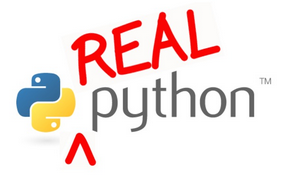Flask is a micro web framework powered by Python. Its API is fairly small, making it easy to learn and simple to use. But don't let this fool you, as it's powerful enough to support enterprise-level applications handling large amounts of traffic. You can start small with an app contained entirely in one file, then slowly scale up to multiple files and folders in a well-structured manner as your site becomes more and more complex.
Please note: This is a tutorial series, which is still in progress. The source code is not meant to be used until the end of the series.
| Part | Title | Blog URL | Video URL |
|---|---|---|---|
| 1 | Setting Up a Static Site | Link | Link |
| 2 | Creating a login page | Link | Link |
| 3 | User Authentication | N/A | Link |
| 4 | Template Inheritance | N/A | Link |
| 5 | Databases | N/A | Link |
| 6 | List Comprehensions | N/A | Link |
| 7 | Unit Tests | N/A | Link |
| 8 | Deploying to Heroku | N/A | Link |
| 9 | SQLAlchemy | N/A | Link |
| 10 | Configuration | N/A | Link |
| 11 | Secret Key | N/A | Link |
| 12 | Heroku Configuration Settings | N/A | Link |
| 13 | Heroku Postgres Setup | N/A | Link |
| 14 | Local PostgreSQL Setup | N/A | Link |
| 15 | Managing Database Migrations | N/A | Link |
| 16 | Database Downgrades with Flask-Migrate/Alembic | N/A | Link |
| 17 | Virtualenvwrapper | N/A | Link |
| 18 | Password Hashing | N/A | Link |
| 19 | Blueprints | N/A | Link |
| 20 | Blueprints Redux | N/A | Link |
| 21 | User Authentication | N/A | Link |
| 22 | Unit Testing with Flask-Testing | N/A | Link |
| 23 | Session Management with Flask-Login | N/A | Link |
You can view the entire video playlist here.
